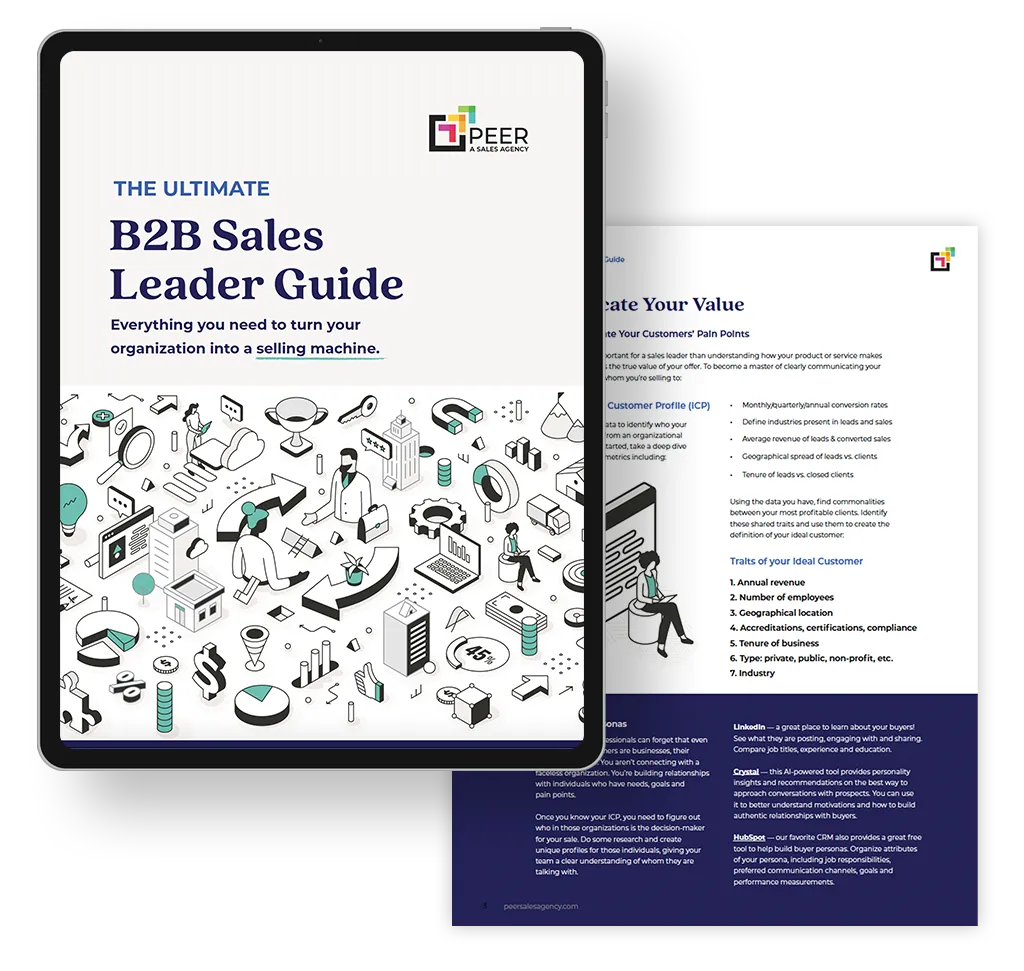As seasoned professionals in the sales domain, we often approach new methodologies with a healthy dose of skepticism. It’s part of our DNA to question the efficacy of any strategy, especially one as nuanced as content marketing. Trust me, we get this question a lot, ‘Why invest time and resources in creating content?’
But let’s take a look at a few stats from Deloitte that might encourage you to take a second glance at what content could do for your sales:
- A 68% of B2B buyers prefer to do individual research online than be involved with a sales rep.
- 62% of B2B buyers develop selection criteria and finalize a vendor list based solely on digital content.
- 75% use social networks to learn about different vendors.
Most sales teams today are finding the sales landscape ever more challenging. From identifying quality leads to navigating extended buying cycles, and the dance of convincing multiple decision-makers. It’s a landscape where a simple pitch just doesn’t cut it anymore.
So why should content marketing be a key part of your sales strategy, you ask? It’s because it addresses these very challenges head-on. Quality content helps filter through the noise, attracting the leads that matter. It keeps potential clients engaged through those long decision-making processes. When it comes to convincing a group of decision-makers, nothing works better than well-crafted, informative content that speaks to each of their unique concerns and needs.
Attracting the Right Buyers
In the vast sea of potential customers, it’s not just about casting the widest net, but rather using the right bait to attract the right fish. This is precisely where content marketing shines. It’s a strategic tool, meticulously crafted to not only reach an audience but to connect with the ideal buyers for your products or services.
Targeted Reach
Content marketing allows you to create materials specifically tailored to the interests, needs, and challenges of your ideal customer profile. By focusing on topics that resonate with your target audience, you can effectively draw in buyers who are more likely to be interested in what you have to offer.
Read: Step-by-Step Guide to Creating Your Ideal Customer Profile
Educating and Informing
Prospective buyers are on a journey, seeking solutions to their specific problems. Through educational blogs, insightful webinars, or informative e-books, content marketing helps you provide valuable information that addresses these pain points. This approach positions your brand as a thought leader and a reliable source of solutions, making your business the go-to choice for these informed buyers.
SEO Advantage
Good content is also good for search engines. By integrating keywords and topics relevant to your target audience, your content will rank higher in search engine results, making it easier for the right buyers to find you. This organic visibility is crucial in attracting leads who are actively searching for solutions you provide. Keep in mind, If you aren’t putting out content, but your competition is, they are likely grabbing those buyers’ attention first.
Building Trust and Credibility
By consistently providing valuable and relevant content, you build a relationship with your target audience. This relationship is based on trust and credibility, two key factors in a B2B buyer’s decision-making process. When buyers trust your brand, they’re more likely to consider your products or services when they’re ready to make a purchase.
Segmentation and Personalization
Content marketing also allows for the segmentation of your audience and the personalization of your messaging. By understanding the specific characteristics and preferences of different segments, you can tailor your content to speak directly to each group’s unique needs and interests, further attracting the right kind of buyers. You can further segment buyers based on the types of content they are consuming. This process can give you key insights into your prospects, even buying signals.
Nurturing Leads Through the Sales Funnel
The B2B sales landscape is characterized by longer buying cycles, where leads often require more time and nurturing to convert into customers. This is where content marketing becomes a pivotal strategy, guiding potential leads through the sales funnel by addressing their needs at each stage of the buyer journey.
Awareness Stage
In the initial stage of the funnel, potential buyers are just beginning to recognize their challenges or needs. Here, content marketing focuses on creating awareness about these issues and introducing your brand as a thought leader. Educational blog posts, industry reports, and insightful infographics can effectively capture attention, laying the groundwork for a relationship.
Consideration Stage
As leads move into the consideration stage, they start exploring potential solutions. This is where more detailed and solution-oriented content comes into play. Webinars, case studies, and how-to guides provide deeper insights into how your products or services can address their specific problems. This type of content helps leads evaluate your offerings in the context of their unique needs.
Decision Stage
In the decision stage, leads are ready to make a purchase but might still be comparing options. Here, content that showcases the unique value proposition of your offerings is crucial. Detailed product demos, customer testimonials, and comparative analyses can tip the scale in your favor, demonstrating why your solution is the best choice.
Post-Purchase Stage
Content marketing doesn’t end with the sale. In the post-purchase stage, the focus shifts to customer retention and advocacy. Educational content that helps customers get the most out of your products, along with updates about new features and services, keeps them engaged and satisfied, turning them into long-term clients and brand advocates.
By delivering valuable content at the right time, you can effectively guide leads through their buying journey, addressing their evolving needs and moving them closer to a purchase decision. It’s a strategy that aligns with the patient, consultative nature of B2B sales, building trust and credibility over time. Doesn’t reaching out to share a new article or ebook that’s of interest feel more authentic than those empty calls or check-in emails?
Essential Types of Content for Enhancing the Sales Process
For a sales team navigating the complexities of the B2B market, a diverse arsenal of content types can be just what sales teams need to hit goals. Each type of content serves a unique purpose in enhancing the sales process and can significantly increase the number of deals closed. Here’s a breakdown of the key types of content and how your sales team can utilize them effectively:
Case Studies and Success Stories
Nothing speaks louder than success. Case studies provide concrete examples of how your product or service has helped similar businesses. They are powerful tools in the later stages of the sales cycle, offering tangible evidence of your solution’s effectiveness. Sales teams can use these to address specific concerns or objections by showing real-world results.
Blog Posts and Articles
Regularly updated blogs and articles keep your brand relevant and authoritative. They can cover a range of topics from industry trends, and problem-solving techniques, to how-to guides. Sales teams can use these as touchpoints to keep in contact with leads, offering valuable insights and keeping the conversation going.
Read: Win more deals by educating prospects with a killer blogging strategy
White papers and eBooks
These are great for delving into topics in more detail. White papers and eBooks offer in-depth insights and position your brand as a thought leader. Sales teams can use them as lead magnets, collecting contact information in exchange for access, or as resources to educate prospects during the consideration phase.
Product Demos and Video Content
Video content, including product demos, tutorials, and explainer videos, can make complex solutions easier to understand. They are engaging and can quickly showcase the value proposition of your offerings. Sales teams can use these during presentations or send them as follow-ups to provide a clearer picture of how your solution works.
Testimonials and Customer Reviews
Authentic testimonials and reviews build trust and credibility. They show prospects that others have had positive experiences with your brand. Sales reps can use these as social proof during discussions to reassure potential clients.
Email Nurture Campaigns
Email campaigns are crucial for keeping leads warm, especially in longer sales cycles. They can be used to deliver personalized content based on the lead’s stage in the sales funnel, interests, or past interactions. And with tools like Hubspot, many of these campaigns can be automated, allowing sales reps to focus on other activities.
FAQs and Solution Sheets
These provide quick, accessible answers to common questions and challenges faced by prospects. Sales teams can use them as handy tools during meetings or in follow-up communications to address specific queries or concerns.
Social Media Content
Social media posts, stories, and updates can humanize your brand and keep you connected with your target audience. Sales teams can use social media to engage with prospects, share content, and build relationships. Great content also provides an opportunity for your audience to share with their networks, increasing your reach and bringing in more of your target audience.
Making Content Marketing Work for Your Sales Team
Understanding the importance of content marketing is just the first step. The real challenge lies in effectively integrating it into your sales strategy. I get it, it can be intimidating. But it doesn’t have to be difficult. If you’re ready to see how content marketing can revolutionize your sales process, let’s talk. I’ve helped countless businesses integrate content marketing as a sales enablement strategy. I’d be happy to assess your approach and discuss how you can make content work for you.




